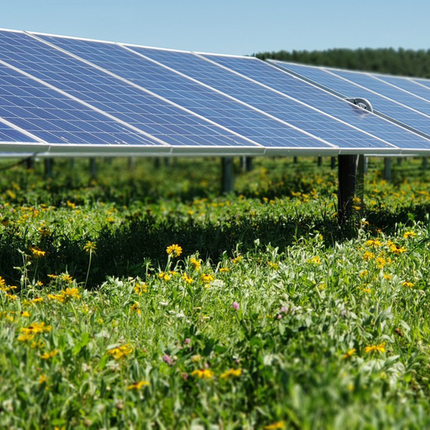Published in the the Black Hills Pioneer on May 28, 2021
Black Hills Energy customers will no longer find solar a financially feasible option to cut their energy costs if a proposed tariff on renewable energy generation is approved.
In an application submitted to the South Dakota Public Utilities Commission, the company is asking to implement a “buy all, sell all’’ tariff on new customers who generate their own renewable energy. In practice, this tariff would essentially seize control of private solar by requiring grid-tied customers to sell all of the energy they generate back to Black Hills Energy at a reduced rate. At the same time, customers would be forced to turn around and purchase 100% of their energy, even the energy they generated themselves, back from the company at the much-higher retail rate.
Under the proposal customers generating under 1 megawatt of renewable energy would be unable to use any of the energy they produce. Instead, they would be forced to sell it all to the utility for around 2.5 cents per kilowatt hour (kWh), and then buy back that same energy from the utility for around 12 cents. Customers would also be required to pay for the installation of a production meter and incur a $10/month meter charge.
One thing is clear—this tariff is bad news for small-scale solar.
Customers of Black Hills Energy have calculated that, under the proposed tariff, energy costs for those using distributed generation systems would be double or greater than what they currently are, and the payback period on a solar system investment would extend to 40 years or more, which is beyond the expected lifetime of the equipment.
Black Hills Energy claims customers who self-generate aren’t paying their “fair share” to use the grid. That claim is false. Customers currently pay a fee to connect their systems to the grid and purchase any energy they consume at the standard retail rate. They also supply the utility with low-cost renewable energy that can be used to service nearby customers.
Residential solar panels and other distributed energy generation systems provide important benefits to the grid, such as reducing energy demand during peak hours, which lowers the cost for everyone, and greater reliability of electrical service. Multiple states, including Minnesota, have conducted Value of Solar (VOS) studies to quantify the value of privately-generated solar to the grid and set a fair compensation rate. These studies calculate the benefits and costs of solar, taking into the account the cost savings provided by avoided transmission, fuel, and other costs. In most cases the value of solar was found to be higher than the retail rate of electricity.
Black Hills Energy’s proposal is a step in the wrong direction. Utilities should be looking toward the future and encouraging investments in renewable energy, not passing regressive tariffs that turn back the clock on clean energy expansion.





